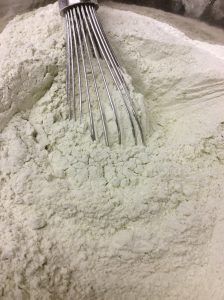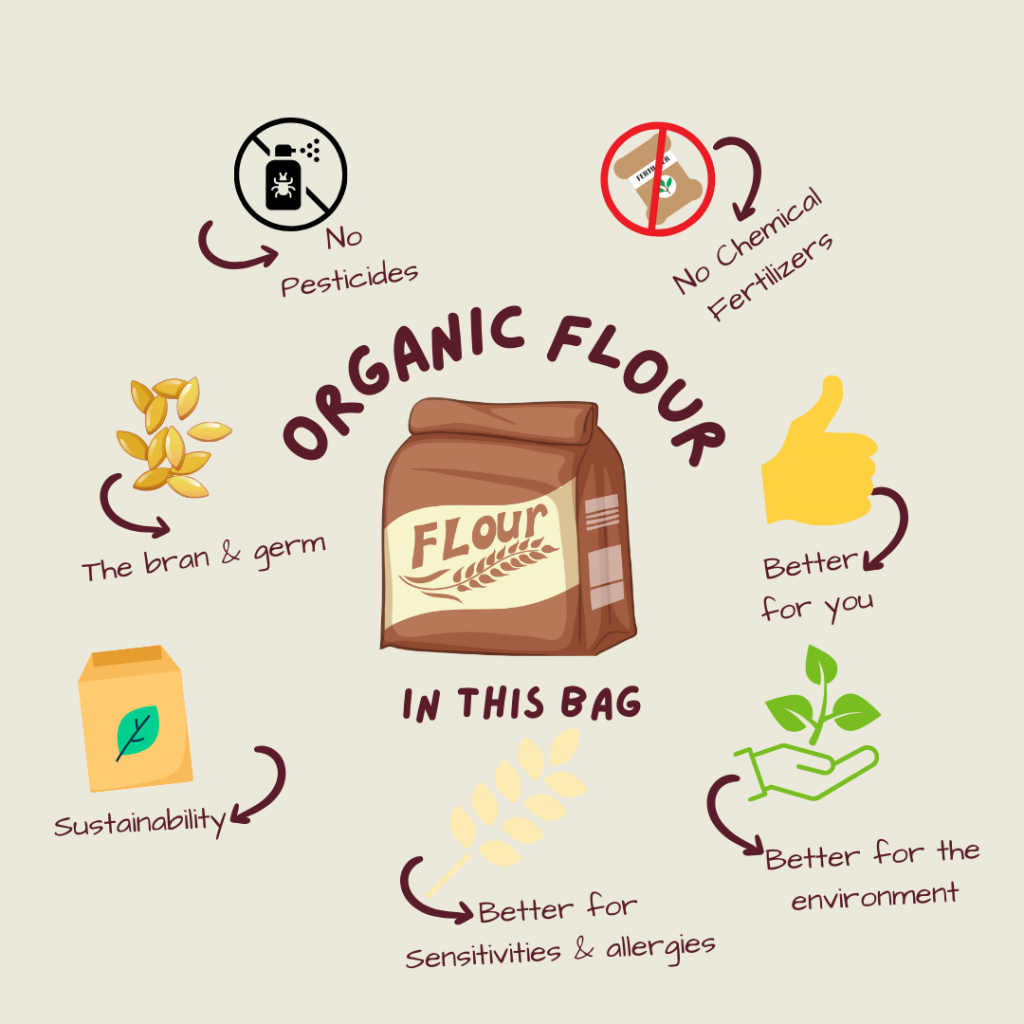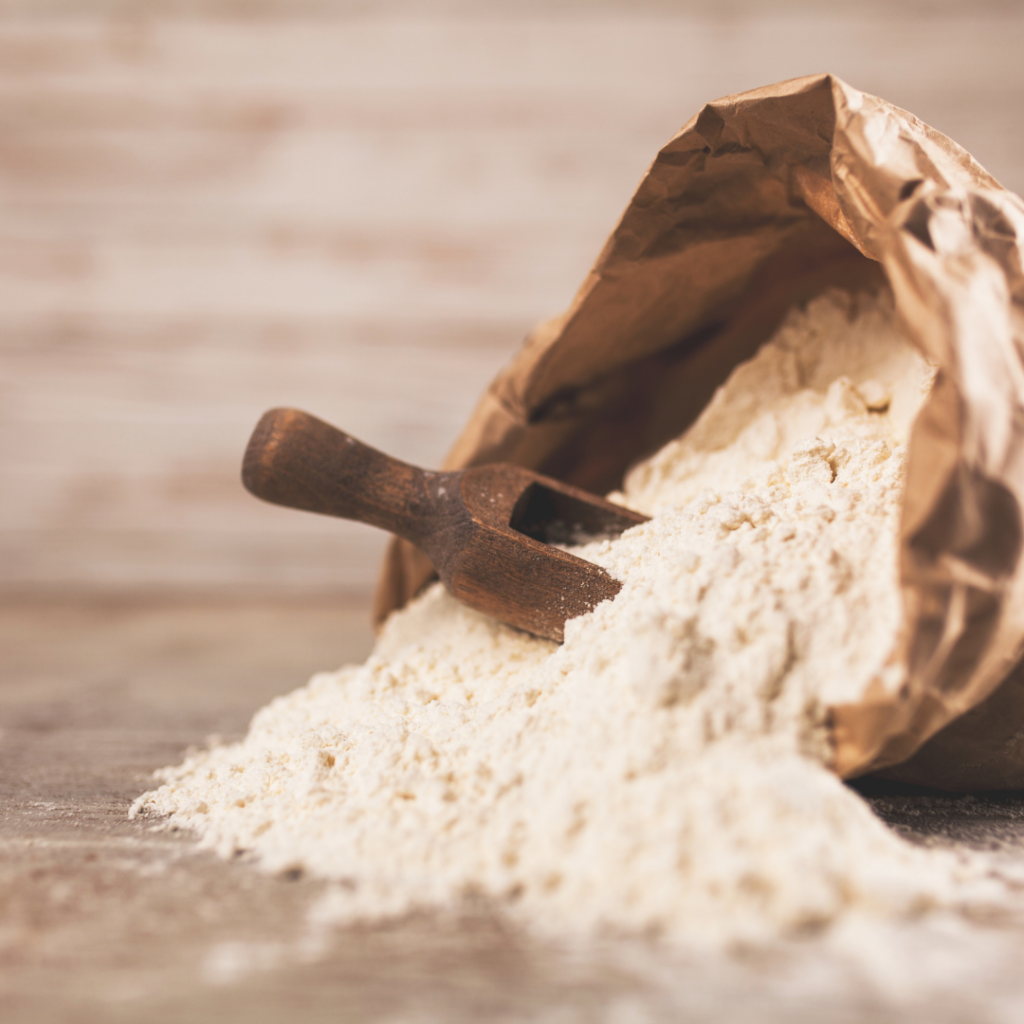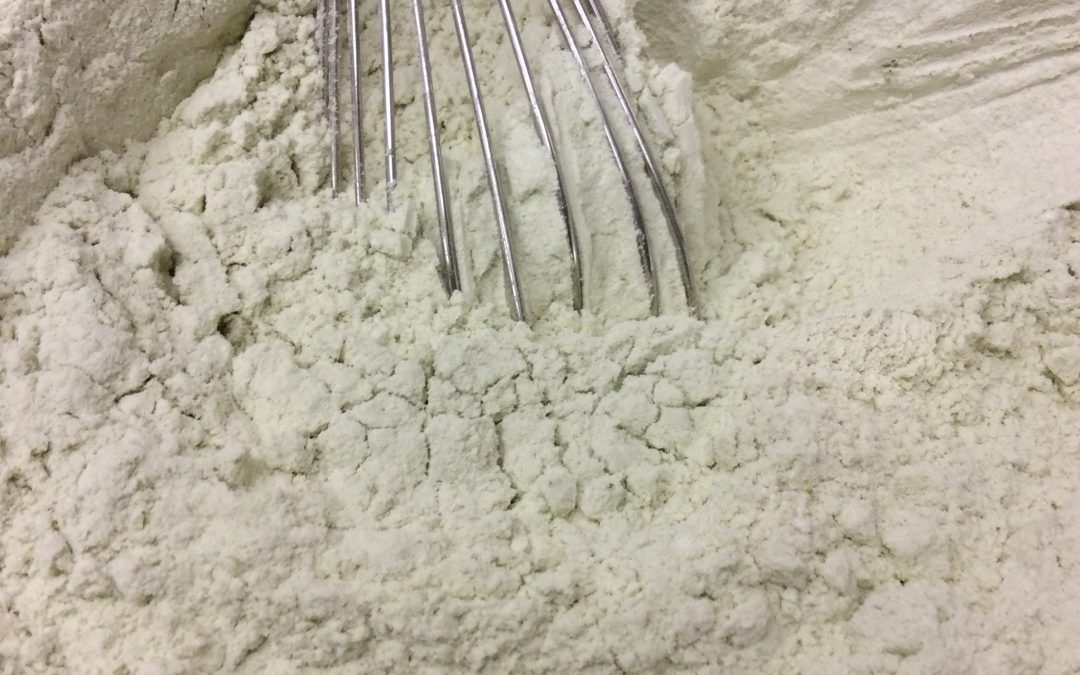When we started Sable Shortbread sustainability and social responsibility were part of our founding values. Our company may be small, but we’re sure of our commitment to the 3 Ps: people, planet and profits. Because we all have a responsibility to do our part.

Since Day One, we have used only organic flour. There’s many reasons for choosing organic flour over conventional flour. Organic flour is:

Free of pesticides
Organic flour is milled from pesticide-free wheat grown in naturally fertilized soil. Organic grain develops more robustly, absorbing more nutrients from the soil making the flour healthier and more nutritious.
By choosing baked goods made with organic flour, you are saying NO to the use of these dangerous chemicals in our food system.
Free of chemical fertilizers
Organic farmers reduce their use of dangerous chemicals that can harm the environment and jeopardize food and water safety by using natural pest and disease control techniques.
By choosing baked goods made from organic flour, you can help promote a healthy sea and planet by helping reduce areas affected by soil erosion and runoff.
Better for you
Organic flour is rich in vitamins, minerals and fibre. It is not artificially processed or chemically ripened and has its bran and germ content intact; it is aged naturally and it has no artificial additives, making organic flour healthier than “regular” or “bleached” flour.
When flour is “bleached”, its germ and bran content are removed. Plus, bleached flour is artificially aged with bleaching agents such as benzoyl peroxide and chlorine gas, among others, to speed up the flour’s aging process. This process results in a whiter, finer-grain flour with a softer texture but yields a less nutritious product.
By choosing organic flour, you prioritize your health and receive the advantage of its nutritional benefits.

Better for the environment
Organic farmers use natural pest and disease control techniques thereby reducing their use of dangerous chemicals that can harm the environment and jeopardize food and water safety. They keep their soil healthy, reducing erosion and enhancing fertility through crop rotation and sustainable farming methods. These methods help build a more resilient and long-lasting agricultural system and promote environmental health.
By choosing organic flour you are supporting nature, protecting the environment and promoting sustainable farming!
Better taste and texture
Organic flour is of superior quality. It is made using conventional milling techniques that preserve the quality of the wheat grain. Organic flour typically has a delightful flavor and texture because it is made from premium wheat grown in nutrient-rich soil.
Organic flour is aged naturally while chemicals such as bromates are used to speed the aging of flour and tend to leave flour with a bitter aftertaste. Flour aged naturally by being exposed to oxygen over time accentuates the grain’s flavours. Organic flour’s distinctive flavor and aroma, frequently described as nutty or earthy, can improve the taste of baked goods and makes for a more flavorful and delicious experience.

By choosing baked goods made with organic flour, you will enjoy baked goods with better overall quality and taste.
Better for sensitivities and allergies
 Organic flour is a better option for people with food allergies or sensitivities. Contrary to conventional flour, which could contain allergen traces due to cross-contamination, organic flour is generally made in special facilities free of common allergens.
Organic flour is a better option for people with food allergies or sensitivities. Contrary to conventional flour, which could contain allergen traces due to cross-contamination, organic flour is generally made in special facilities free of common allergens.
Furthermore, some of those with gluten sensitivity can benefit from using organic flour. It is frequently made using conventional techniques that preserve the original gluten structure, making it easier for people with gluten sensitivity to digest.
By choosing organic flour people with gluten sensitivities may find they are able to enjoy their favourite baked goods made with wheat flour.
Sustainable packaging
 Organic flour is often sold in environmentally friendly packaging materials that can be easily recycled or composted and are created to be more environmentally friendly.
Organic flour is often sold in environmentally friendly packaging materials that can be easily recycled or composted and are created to be more environmentally friendly.
By choosing organic flour, you help promote sustainable packaging methods and reduce waste and a more sustainable approach to food production.
Not genetically modified
Organic produce is not genetically modified (no GMOs). While there is currently limited evidence that GMOs affect our health negatively, there are concerns that manually forcing the process of gene transfer can have a negative impact on the environment.
For example, produce that has been genetically modified to induce resistance to herbicides allows farmers to spray their crops with more weed killers. Numerous studies have shown that this increased use has also led to genetic resistance in the weeds surrounding the crops. In turn, farmers spray their crops with even more herbicide and…well, you’ve already read why that’s bad.





